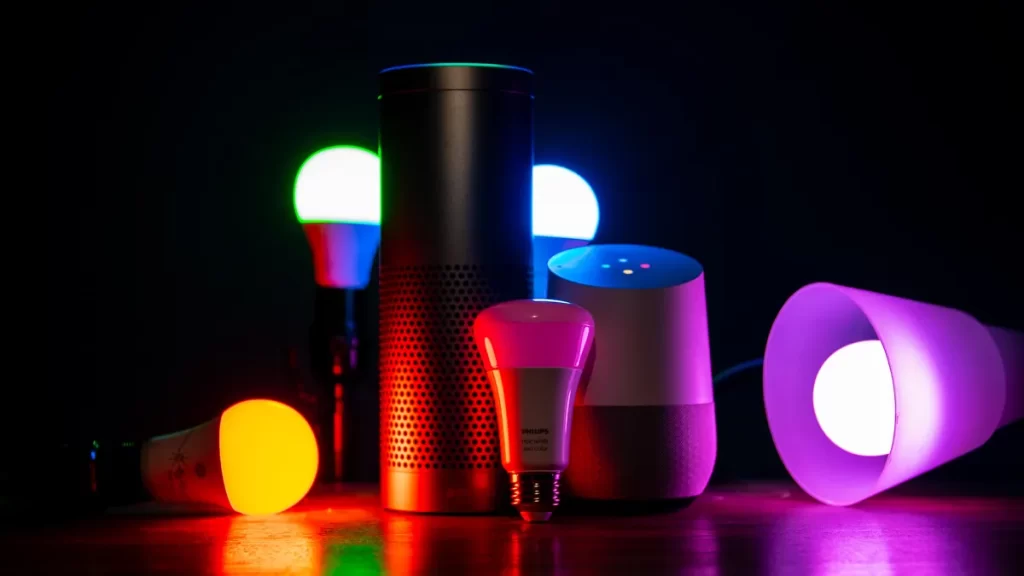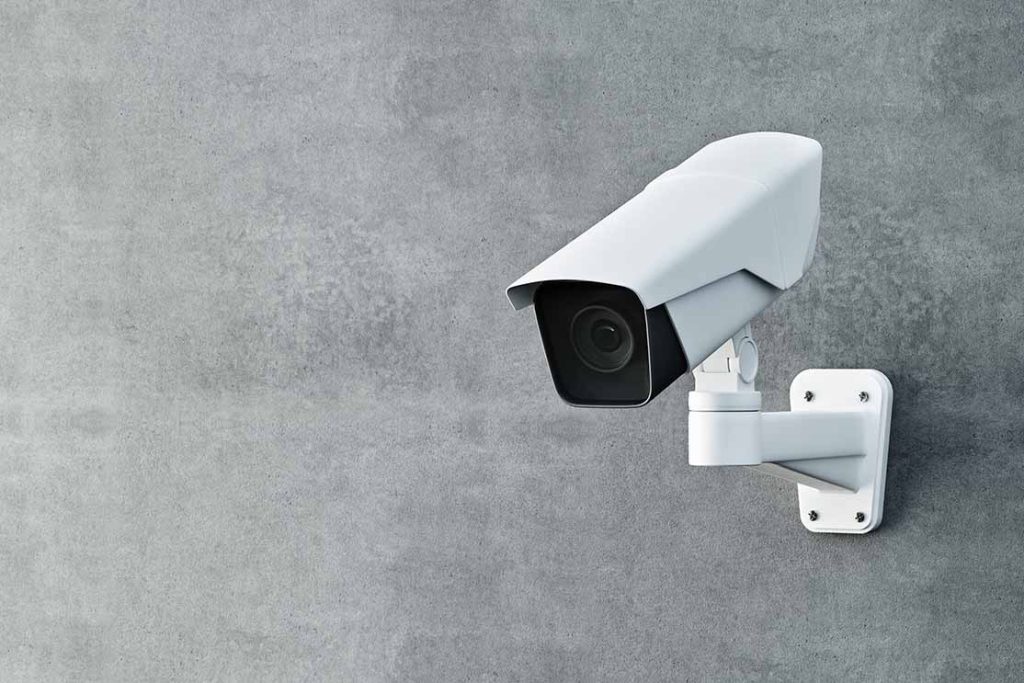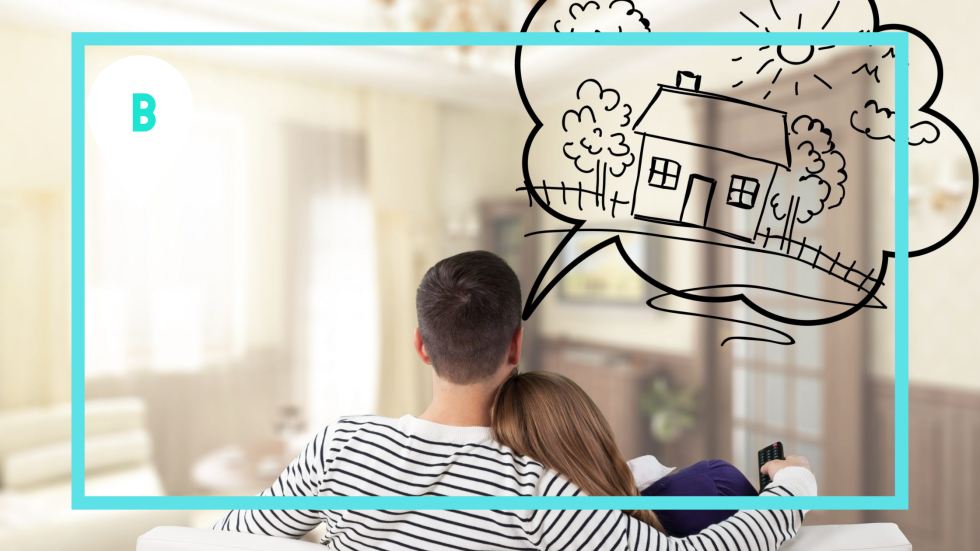Over the last couple of decades, smart devices have gone from something only the tech-savvy had to something even your grandma uses daily. Smart home technology is becoming increasingly incorporated into new home builds, with home automation becoming the new norm in houses. Let’s take a look at how smart homes work and the benefits they could bring to your everyday life.

Table of Contents
What is a smart home?
Everyone these days has smart devices, so when exactly does your home become a smart home? A smart home has an overall system or network that connects various smart home technologies. Typically, a key element of a smart home is the ability to control appliances through smart devices, such as your phone and iPad. For example, through an app on your phone, you can control your home’s temperature or even turn the heating on as you leave work, so your home is nice and warm when you arrive.
Smart home technology goes well beyond your phone and iPad, with almost everything you can think of capable of being a part of your smart network. Just some smart devices include:
- Lighting
- Entertainment (televisions, stereos, smart speakers, computers, phones, etc).
- Air conditioning and heating
- Garage doors and Garage door openers
- Locks and other security systems (cameras, lighting and such).
- Smart home appliances including washing machines, dishwashers and hot water heaters.
For this wireless system to work, you will need a stable wi-fi connection to ensure everything runs smoothly.

The Growing Trend of Smart Homes in Modern Construction
Smart home technology is becoming more common in new home builds. Here are just some of the key benefits that are convincing homeowners to leap smart homes.
Increased Energy Efficiency
Smart Lighting Systems
Smart home systems usually include the home’s lighting. Beyond the convivence of being able to control your lighting from your phone, smart lights actually reduce energy consumption. This is due to the LED technology used in smart lights having a significantly lower energy usage than older lightbulbs. Automated lighting controls will allow you to program your lighting to turn off when not in use or after a certain time.

Smart Thermostats
A smart thermostat allows precision temperature control from your mobile phone or smart device, whether you’re home or not. Smart thermostats can also learn and adapt to your habits, helping you make energy savings.
Increased home security and safety with smart devices
Your home is your castle, and you want to go to bed at night knowing your loved ones are safe. Smart home technology can greatly increase the security system of your house with a variety of features including:
Security Cameras: Connect to your camera and monitor your home from anywhere, whether you’re at work or overseas on holiday. We recommend installing the security camera in an easy-to-see place, as just the presence of a camera will deter most unwanted visitors.
Smart Doorbells: Allows you to see who’s at the door on your mobile device
Smart Locks: Allows keyless entry and is integrated into the rest of your security system. Concerned the code may have fallen into the wrong hands? You can easily change it as often as you like to improve your security.
Alarm systems: Get real-time alerts wherever you are.

Convenient and accessible smart home management
The key appeal of smart homes is the convenience they bring to your everyday life. Over the years, smart systems have become more user-friendly and intuitive, allowing even the less tech-savvy member of your family to get on board.
The central hub allows you to check and control all connected devices from the convenience of your mobile device. Just got comfy in bed and suddenly wondered whether you locked the front door. Simply look at your phone and if you haven’t, you can activate your smart lock without getting up.
Voice activation is a common feature in smart homes, allowing you to use programs like Google Assistant or Siri to operate your home automation. Through voice commands,
Health and Wellness
Smart home devices allow you to monitor various elements of your home including temperature, carbon monoxide detectors and air quality and reduce safety risks.
For older residents and anyone with mobility issues, smart homes can make life easier. Burdensome tasks like opening and closing the garage door or having to adjust the temperature can be done from their mobile device.

Increase in Property Value
Smart homes have gone from being a niche that someone like Bill Gates would have to a mainstream feature in the real estate market. An increasing number of potential home buyers expect houses to be smart homes, so having these features already installed could give you an edge in a competitive market.
Though at the moment, this will appeal to more tech-savvy buyers, the more time goes on, the more people will adapt to this technology. Even compared to five years ago, smart homes have become more prevalent.
Long term Savings of investing in smart technology
The use of smart light bulbs, a smart thermostat, and other smart home gadgets allows you to both monitor and reduce your energy usage. Smart home tech also has the potential to greatly cut down your energy bill
Smart appliances often can detect issues early, potentially saving you a fortune in maintenance costs.
Future-Proofing Your Home Automation
Smart technology has become a part of our everyday lives and it isn’t going anywhere soon. If anything, it’ll only continue to evolve and work its way into even more facets of our homes. Making sure your new house is compatible with smart tech will make your home future-ready and easier to adapt to new innovations.
Smart Home Technologies Environmental Impact
Smart home-compatible devices are designed using the latest technology which is usually much more eco-friendly and energy efficient. This is not only great for your wallet but makes your home much more environmentally friendly. With recent changes to the National Construction Code making it compulsory that new homes must have a 6-star NaTHER rating, this will go a long way towards achieving this requirement.
Our Key Smart Home System Considerations for New Home Builders
- Great smart home design begins at the planning and design phase. Collaborate with technology experts
- Budgeting for Smart Home Devices and Features: weigh up both initial costs and long-term savings to determine the quality of your investment
- Check your internet connection: It’s no secret that the internet in some areas in this country is pretty… not good. Imagine Netflix buffering but it’s now your entire house and you’ll have an idea of life in a smart home with poor internet connectivity.
- Buy what you need or will use: Not all features are going to be essential to everyone. Consider what will actually be helpful before purchasing smart home technology.
Home Automation Systems Frequently Asked Questions and Considerations
Do Smart homes use more electricity?
It may seem that logically smart homes would use more energy, but they tend to be energy efficient. This is because appliances that have smart technology also tend to have the latest eco-friendly features and use less energy.

Are smart homes safe?
Yes, but you need to do your due diligence. The potential downside of smart home technology is that it can be hacked into if you don’t have adequate protection. Your best bet is to think of your house the same way you would your computer. Some helpful tips include:
- Keep your software up-to-date.
- Use secure passwords (no birthdays, years of birth, or anything someone could look up).
- Only give passwords to someone you trust.
- Use dual authentication systems
- Discard old, out-of-date tech.
- Change passwords regularly.
- Regularly check your activity log to make sure you can account for every log (the same way you would with your bank statement).
- Look into suspicious or unusual activity. It’ll often turn out to be nothing (hubby messed up the password, kids came home early, cat set off the alarm), but it’s always best to take a better safe than sorry approach.

Are smart homes expensive?
The short answer is a basic home automation setup will cost between $2,000-$4,000, however, the overall cost will depend on what you’re after. Some people only have a few appliances smart activated, while others go all out. The more elaborate your setup, the more it will cost. Remember, you don’t have to do it all at once. For example, you could get a basic setup to start with, then add other devices down the line when you have some more cash.
Is Smart home automation the right choice for your new build?
Summary of Smart Home Technology Advantages
Smart home technology brings your home into the 21st century, making your lifestyle more convenient, safe and eco-friendly. Smart home benefits include remote monitoring, the chance to save money on energy bills and home security.



0 Comments